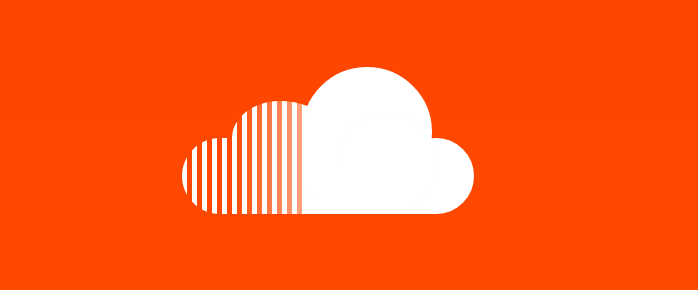For almost a year, there have been highly publicized issues involving SoundCloud removing unauthorized remixes and bootlegs from their site. It’s heartbreaking and frustrating to see as a big part of what made SoundCloud so popular was the fact that artists could share their sounds without the threat of takedowns. An enormous percentage of its traffic is due to unofficial remixes or songs without sample clearance. By eliminating such works from their platform they are offending and alienating the artists and fans that built the platform. To be fair, SoundCloud’s leadership team didn’t wake up one day and say, “we hate unofficial remixes, let’s take them all down,” instead this is a result of the platform’s push to monetize and pressure from major labels and artists to remove any unauthorized content. It’s another illustration of artists and more importantly labels, who are out of touch with the times, still trying to hold on to their archaic ways of thinking. What they need to realize is that remixes, whether official or unofficial are good for everyone. From promoting the original artist, to expanding a song’s reach, helping break new artists and enabling limitless creativity, the benefits are undeniable.
Whoever is taking the music down should think that regardless of who it is, that person has put EFFORT into making the track and is 9/10 times doing it for the love of making music, not for the money. – TroyBoi
Remixes promote the original artist
This is easily the biggest argument for why remixes and bootlegs are a good thing; they amplify the reach of the original artist’s sound. For every remix that is put out, the reach of the song is increased exponentially. For example, if Skrillex remixes a song it is then posted to his 5 Million+ followers. Assuming he properly credits the original artist (which all artists should) they are guaranteed to get some new fans. This is a large scale example, but if an artist with even 20,000 or 5,000 followers drops a remix, that’s a huge amount of new ears exposed to that artist’s work. For me personally I only started listening to the Weeknd & Schoolboy Q because I heard remixes of their music that I liked. I had checked out their original material and wasn’t a huge fan, but hearing their work remixed made me take a second listen and ultimately check for and support their music.
Prior to the Superbowl, Missy Elliot was making a strong comeback in the electronic music space due to producers sampling and remixing her songs. From ‘Boy Oh Boy’ to ‘Stop Me Now’ and Kaytranada’s ‘Sock it To Me’, these tracks made Missy the most relevant she’s been in nearly a decade. This ultimately lead to her finding her way onto Jack U’s remix of the hit ‘Take U There’, and has her primed for a highly anticipated comeback. The number of examples are endless with big name artists like Ellie Goulding, Calvin Harris, Kid Cudi, all having seen a direct boost in fans as a result of reworks.
They allow for play in new environments
Artists create music with a specific sound, mood and vibe in mind. To have that completely altered without their permission can be frustrating, but it’s also liberating. It allows the piece to take on a new life and be heard in new situations. Take for example, A-Trak’s remix of Yeah Yeah Yeah’s ‘Heads Will Roll’. A-trak took a mellow electro-indie rock tune and turned it into one of the biggest festival anthems of the past 5 years. There’s no way you would hear the Yeah Yeah Yeah’s on Ultra’s main stage prior to the rework, but A-Trak made it so that you couldn’t not hear it. The remix also has more than double the amount of plays (YouTube) than the original, further backing my first point. And that’s just one example. Whether it’s a trap flip, jersey club rework, or an electro anthem, the remixes allow fans to experience artists they otherwise may not.
They help new artists gain greater exposure
In addition to two benefits above it is also a huge way for up-and-coming artists to get great exposure. When Andrew Luce dropped his ‘Birthday Sex’ remix in early 2014 I had no clue who he was, but I thought a trap remix of ‘Birthday Sex’ was definitely worth a listen. The remix turned out to be amazing and Andrew Luce has become one of my favourite artists of the year. It’s also important to note that his remix has clocked over a million plays to date, which perfectly reinforces my first point. Andrew Luce is just one example, similar narratives can be applied to many of our favorite artists including Trippy Turtle, Hoodboi, TWRK, SNBRN and Dr. Fresch, to name a few.
Takedowns limit creativity
A final point to be considered is how the threat of take downs affect producers. Remixes have been an essential part of dance culture since its inception. The war against unofficial remixes is detrimental to artists’ freedom and creativity. When we spoke to TroyBoi last year he echoed these sentiments giving us an artist’s perspective on the issue, “It’s a bit disappointing because it restricts people from being creative. Whoever is taking the music down should think that regardless of who it is, that person has put EFFORT into making the track and is 9/10 times doing it for the love of making music, not for the money. I love listening to remixes especially from artists that I like and isn’t nice seeing a track getting removed. It has 100% subconsciously steered me away from doing remixes unless it’s an official remix. I hope this situation gets better for all our sakes.” As do I.
Remixes are good for everyone
We live in a time where if you put something out it almost instantly becomes public domain. When you release a piece of art, you can no longer control its distribution or what becomes of it. If someone remixes an artist’s work it should be viewed as the highest compliment (someone loves something you created so much they want to put their own spin on it). Some might argue that they don’t want crap remixes watering down or deterring listeners from their songs, but the fact of the matter is listeners these days are smart; they know the difference between an original and a remix, and if it’s poorly done it simply won’t be played. Labels and artists need to get with the times and realize remixes are good for everyone.
Agree with our perspective? Have a different point of view? Let us know in the comments section below and on Twitter and Facebook.
*To be clear this article refers to reworks that are put out for free, making money off a release without paying the content’s originator is not something that should be supported.


